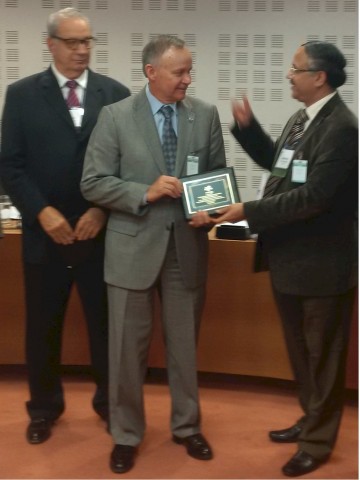Sandler, Travis & Rosenberg Trade Report
The Supreme Court announced May 26 that it has denied a petition to review a September 2014 court decision that created a broad new category of individuals who may be subject to penalties for corporate entry violations. The ruling by the Court of Appeals for the Federal Circuit distinguished between those who enter goods (e.g., the importer of record) and those who introduce goods into U.S. commerce and broadly defined the latter, thereby extending to import managers, compliance officers, business owners and others personal liability for fraudulently or negligently providing information on company imports.
Sandler, Travis & Rosenberg offers an on-demand webinar examining how the CAFC’s decision, as well as other compliance considerations, may affect small businesses. Click here for more information.
19 USC 1592(a)(1) prohibits any person from fraudulently or negligently entering, introducing or attempting to enter or introduce merchandise into U.S. commerce by means of (a) any document or electronically transmitted data or information, written or oral statement, or act that is material and false or (b) any material omission. U.S. v. Trek Leather Inc. and Harish Shadadpuri centers on Trek’s failure to include in the price actually paid or payable for 72 entries of men’s suits the cost of fabric assists provided to foreign manufacturers that were then incorporated into the imported suits.
Shadadpuri argued that he could not be held personally liable for this failure despite his status as Trek’s president and sole shareholder because he did not serve as the importer of record. The CAFC, however, ruled that 19 USC 1592(a)(1) applies to any person, regardless of whether or not they are an importer of record. In effect, the court ruled that there is no need to pierce the corporate veil to impose 592 penalties against anyone who personally commits a violation.
The CAFC then found that Shadadpuri was grossly negligent in introducing goods into U.S. commerce because he (a) transferred ownership of the goods while they were in transit to the U.S. to a company he chose to be the importer of record and (b) furnished to the hired customs broker, for use in completing and submitting the required entry documents, commercial invoices that materially understated the value of the merchandise. The CAFC rejected Shadadpuri’s argument that because he did not enter the goods as the importer of record he could not be held liable under 1592(a), citing a 1913 Supreme Court decision as confirming that the term “introduce” in 1592(a)(1) means that liability for fraudulent or negligent actions under this provision extends “beyond the act of filing with customs officials papers that ‘enter’ goods into United States commerce.”
The petition seeking a Supreme Court review of the CAFC decision argued that it “is of exceptional importance to the thousands of American-based corporations and their shareholders, officers and employees who are involved in the importation of merchandise into the United States” because it “erroneously expands direct and personal liability for civil penalties” to these individuals “beyond the limits set by Congress,” putting them at risk for “enormous statutory penalties on the basis of negligence or gross negligence without regard to whether they qualify as an ‘aider or abettor’ under the statute.”
The petition also alleged that U.S. Customs and Border Protection has demonstrated “clear intent to take advantage” of the CAFC’s decision by proposing to amend CBP Form 5106 “to collect expansive and personal information from corporate officials.” Sandler, Travis & Rosenberg founding member Lee Sandler said trade groups may now encourage CBP to issue a policy statement or informed compliance publication clarifying its position on this issue.
 During its recent 25th anniversary celebrations in Brussels, Belgium, the
During its recent 25th anniversary celebrations in Brussels, Belgium, the